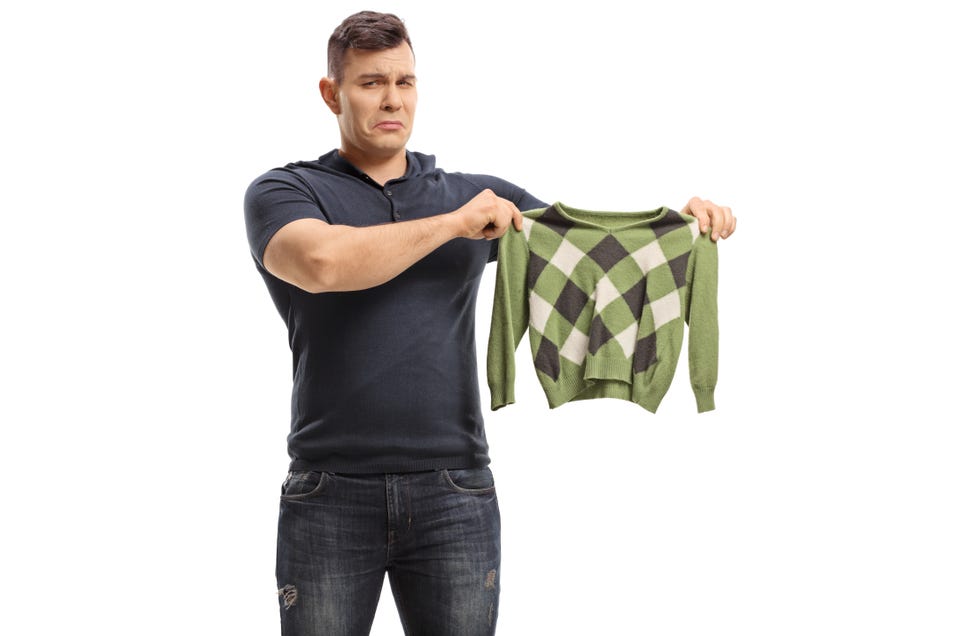Ever taken your favourite shirt out of the wash, only to find it feels a bit snug or shorter than before? You're not alone. Many of us have been there, wondering, "Was it always this size?"
The good news is that shrinkage isn't random. It's not just about the wrong detergent or poor fabric quality. The real reason behind it lies in how fabrics react to water, heat, and movement during the wash. In this blog, we'll get into the causes of shrinking clothes and share practical tips to help you prevent it so your clothes stay just the way you like them.
The Science Behind Shrinking of Clothes
The question of why do clothes shrink after washing often comes down to one key factor – fabric structure.
Many garments are made from natural fibres such as cotton or wool. These fibres are first spun into yarn and then woven or knitted into fabric. During the manufacturing process, the fibres are stretched to achieve the desired shape and fit.
However, when these clothes are exposed to heat, moisture, and the agitation of a washing machine, the fibres attempt to return to their original, relaxed state. This causes the fabric to tighten, leading to noticeable shrinkage after washing.
Fabric Types and Shrinking: Some Shrink More Than Others
Certain fabrics are more prone to shrinking than others. Knowing this helps you take proper precautions.
- Cotton: Cotton is soft and breathable, but notorious for shrinking. High heat in both washing and drying cycles can make cotton garments tighter.
- Wool: Wool fibres are sensitive and tend to lock together when wet and agitated. This is why clothes shrink drastically when washed improperly.
- Synthetic Fabrics: Since polyester and nylon are synthetic fabrics, they are less likely to shrink. However, mixed blends can still shrink depending on the fabric composition.
Top 5 Reasons Why Clothes Shrink After Washing
Let us break it down in list form for easy understanding:
1. High Water Temperature
Hot water can cause natural fibres to tighten, which leads to shrinkage. It is especially harmful for cotton, wool, and linen-based clothing items. Always use cold or lukewarm water when washing delicate garments to prevent unwanted fabric stress and size changes.
2. Dryer Heat
Heat from the dryer is one of the most common reasons why shirts shrink after wash. The intense heat breaks down fibres and removes moisture too quickly. Opting for air-drying or using a low-heat setting can help preserve the fabric's original shape and size.
3. Incorrect Wash Cycle
Using the wrong cycle, especially heavy-duty ones, can damage fibres and make them shrink. Gentle cycles are better for soft, lightweight, or stretchable fabrics. Always match the wash cycle with the fabric type to maintain its durability, softness, and original dimensions.
4. Fabric Composition
Fabrics that are not pre-treated or pre-shrunk tend to react more aggressively during washing. Natural fibres like cotton and wool are especially prone to shrinkage. Understanding the fibre content helps in choosing the right wash method to retain size and structure.
5. Lack of Care Labels
Ignoring or not checking the garment care label can be a mistake. These labels usually contain all the information needed to avoid shrinking. From wash temperature to drying methods, care instructions guide proper garment maintenance and prevent irreversible fabric damage.
Common Misconceptions Around Shrinking
Many people believe shrinking only happens the first time you wash a garment. That is not true.
- Shrinking can happen gradually over time, especially when washing and drying practices are inconsistent.
- Some believe synthetic clothes never shrink. In reality, blended fabrics with natural components can still react to heat.
- Lastly, many assume that shirts shrink after the wash is only due to washing. However, the drying cycle often plays a bigger role.
Knowing why do clothes shrink helps you make informed choices at every stage of your laundry process.
Keep Your Clothes in Great Shape
Proper care of your clothes can help preserve their fit and extend their longevity. By adopting mindful laundry habits, like following care labels and choosing appropriate wash settings, you can avoid issues like shrinkage.
Simple changes such as using cold water, gentle cycles, and avoiding high heat can make a big difference. Over time, these small adjustments will help preserve the quality of your fabrics, ensuring your clothes stay comfortable and last longer. Proper care helps your clothes stay in great shape every time you wash them.




